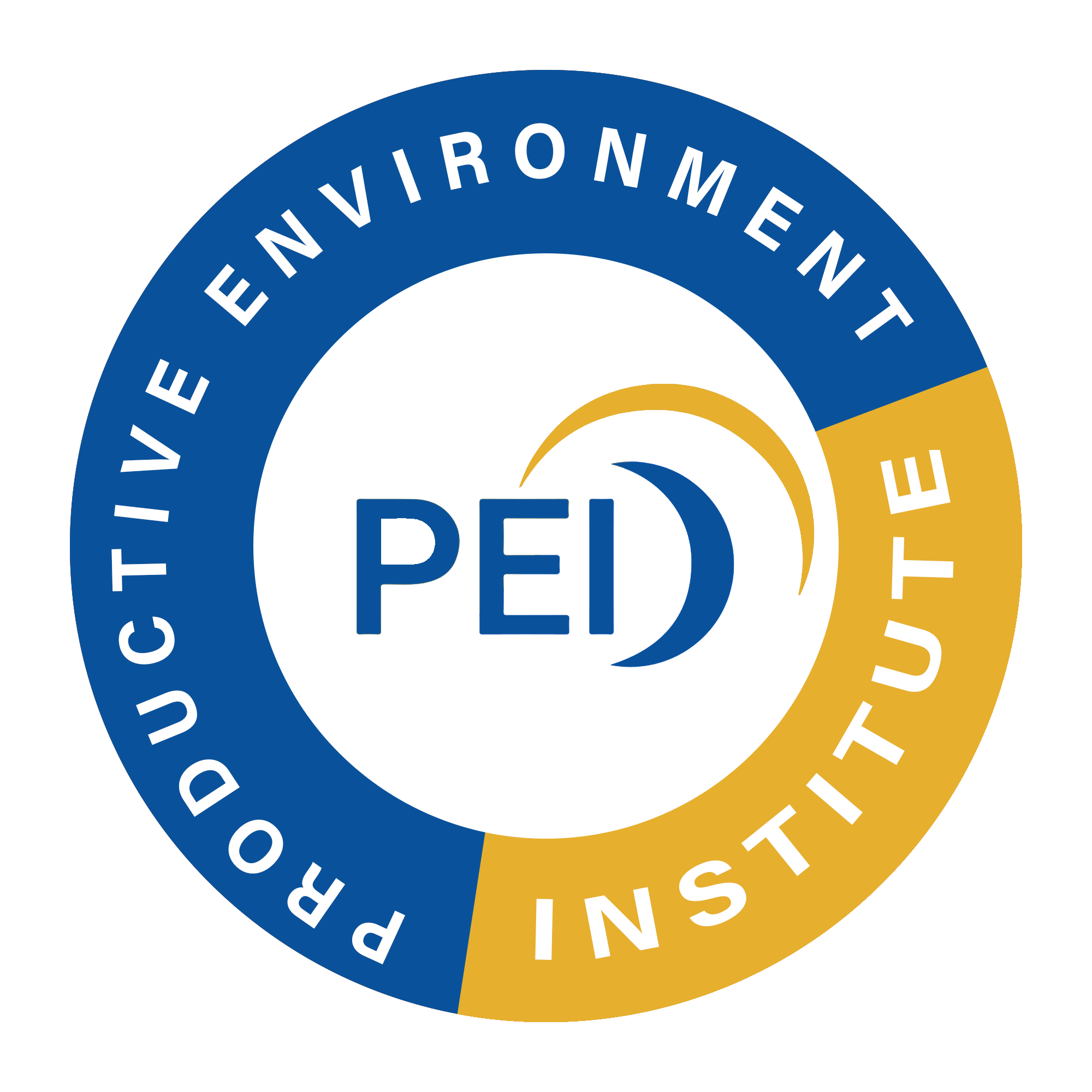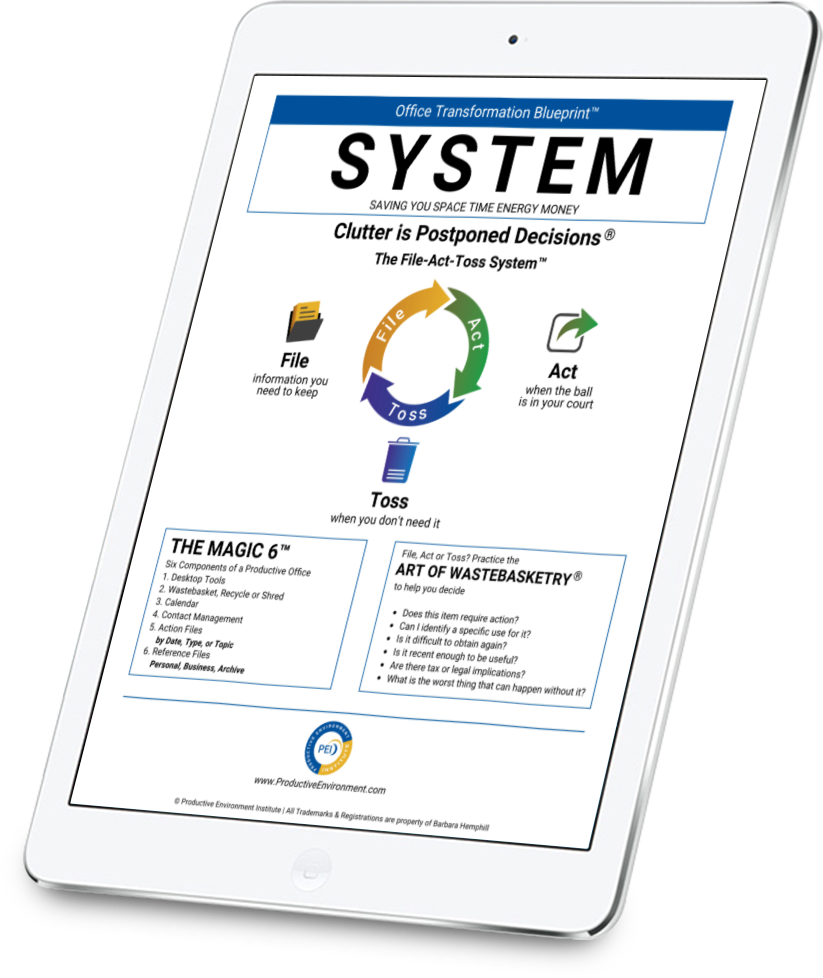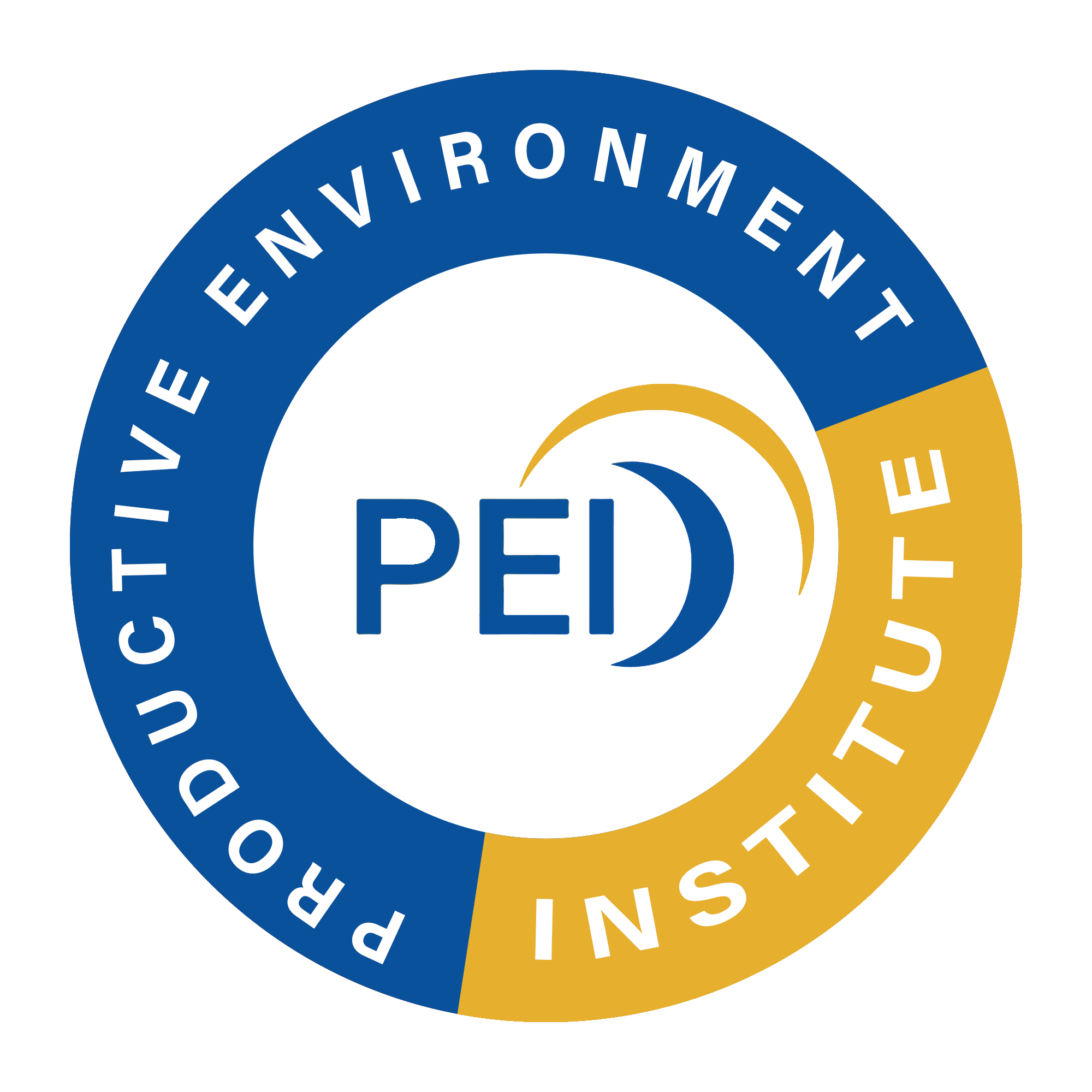Productive Environment Blog

The 7 Ways to Eliminate Paper
How to eliminate paper?
You got your very first piece of paper—your birth certificate—when you were born. Your ability to manage that piece of paper, along with the thousands upon thousands of papers that follow, directly impacts your life in numerous ways.
Your ability to find information, on paper or electronically, will have a substantial effect on your financial security, your legal liability, your business accomplishments, your personal growth and development, your relationships, and your ability to enjoy life. Whether it’s the receipt you need to substantiate a tax deduction or the brochure from that incredible European hotel you enjoyed several years ago, a misplaced piece of paper can cost you time, money, and peace of mind.
While you may feel more comfortable using paper for information you currently need or refer to often, there are numerous ways you can begin to eliminate much of the paper in your life. Here are seven suggestions you can implement, starting today!
1. Practice “The Art of Wastebasketry.” You can keep anything you want—if you’re willing to pay the price: time, space, money, and energy. Ask yourself, “What’s the worst possible thing that would happen if I didn’t have this piece of paper?” If you can live with your answer, shred, recycle, or toss it.
2. Pay your bills electronically. This is a huge time saver and will eliminate the paper you need to keep, making it easier to manage your finances and file your taxes. Create strong passwords for each of your online accounts with upper- and lower-case letters, digits, and punctuation.
3. Implement a scanning system for important documents. Most of today’s printers make the scanning process inexpensive and expedient. This not only eliminates the need for numerous paper files, it can be highly advantageous for information you need in more than one location—such as home and office, or multiple residences. Do not store personal identification such as social security numbers, passports, or financial information on your computer.
4. Eliminate unnecessary printing. Create a simple system for organizing your electronic documents so you don’t have to print unnecessary emails and documents because you’re worried you won’t be able to find the electronic document. Be sure you have a computer backup service or device!
5. Request newsletters and monthly reports in electronic form. Examples include frequent travelers statements and other updates that do not include personal information you want to guard. Electronic newsletters are especially useful when there are only a few articles of interest to you. You can print just the parts you want to read or file.
6. Create a system for managing magazines, newspapers and catalogs. After removing labels from magazines and catalogs that you’ve read, place them in an easily accessible spot. When you have a bundle, take them to a retirement home, hospital, or doctor’s office.
7. Make recycling and shredding convenient and easy. People often hesitate to throw paper away because of their desire to protect our environment or their identity. But you don’t have to sacrifice your quality of life by keeping papers you don’t need. Local businesses and organizations frequently provide free shredding services at various times throughout the year.
Look over the seven possibilities above. Which would be the easiest for you to carry out? Start there, and keep moving forward as you are able. You’ll be amazed at how little you miss the paper and how much more you enjoy your home without the paper piles. Yes, you can live more productively ever after!

Meet Our Team of Experts

BARBARA HEMPHILL
FOUNDER
Productive Environment Institute

ANDREA ANDERSON
CEO
Productive Environment Institute
CONTACT US
Use the Contact button on this page or
Leave a Voicemail @



